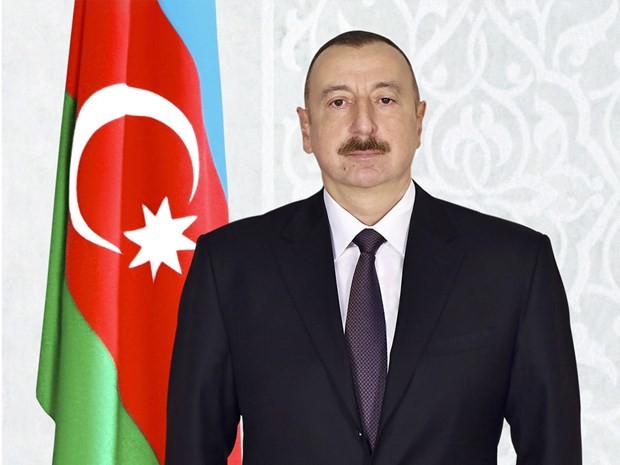(VOVWORLD) - The crisis in Nagorno-Karabakh, the territory under Azerbaijan's sovereignty but under dispute with Armenia for more than three decades, has bogged down in a deadlock. Efforts to find a political solution have failed, and almost all the people of this region are fleeing to Armenia.
Recognized by the international community as a territory of Azerbaijan's sovereignty but occupied by an Armenian majority, Nagorno-Karabakh has been a hot spot in the South Caucasus for more than three decades. After an armed conflict in September, this land fell into a new spiral of instability.
Humanitarian crisis
In the early 1990s, after geopolitical upheavals in Europe and the Caucasus region, pro-Armenian separatist forces in Nagorno-Karabakh tried to separate this region from Azerbaijan. This led to non-stop fighting between Azerbaijan and Armenia, culminating in a war in 2020. On September 19 the Azerbaijani army launched an operation to regain control of Nagorno- Karabakh, creating a major upheaval in the region.
The Armenian government on Monday announced that more than 100,000 people, about 80% of the population of Nagorno-Karabakh, had fled to Armenia since the separatist government surrendered to the Azerbaijani army on September 20.
On Tuesday the UN sent a delegation to inspect the situation, marking the first time in three decades that the UN has been given access to the region.
Initial assessments by the UN mission showed that Stepanakert, the capital of Nagorno-Karabakh, and a number of other urban areas, which were not much damaged by the military operation on September 19th, have become a "dead land" because the Armenian residents have fled. Marco Succi, leader of the International Red Cross and Red Crescent (ICRC), said Stepanakert is virtually empty.
“When we arrived, the city was completely deserted. The hospitals are not functioning, administrative and medical personnel had left, the water authorities had left and the director of the morgue had also left. The scene is quite surreal,” said Succi.
The paralysis of socio-economic activities in Nagorno-Karabakh has increased the risk of a humanitarian crisis. The World Health Organization said that the staying residents are in a dangerous health situation, lacking medicines to treat chronic diseases like diabetes, cardiovascular disease, and cancer. Uncontrolled water quality could soon cause an epidemic.
The tense situation is spreading to Armenia. Because of ethnic proximity, Armenia is almost the only destination for people fleeing from Nagorno-Karabakh. Observers say handling an influx of more than 100,000 people is an overwhelming economic burden for Armenia, a country with a population of fewer than 2.8 million people.
The WHO is calling on the international community to quickly help Armenia, whose health system urgently needs 2,000 nurses and 2,200 doctors to be able to handle the refugees, who are arriving with lots of injuries.
Stalled negotiations
While the humanitarian crisis worsens, political efforts to stabilize the situation are also at a deadlock.
 Azerbaijani President Ilham Aliyev (photo: azernews.az) Azerbaijani President Ilham Aliyev (photo: azernews.az) |
Azerbaijani President Ilham Aliyev on Wednesday announced the cancellation of a meeting with Armenian Prime Minister Nikol Pashinyan in Granada, Spain, on the sidelines of the European Political Community Summit. This was to be a five-party meeting, co-organized by the European Council, Germany, and France, to seek a long-term peaceful solution for Nagorno-Karabakh.
Observers say Azerbaijan opted out of the meeting because the EU rejected Azerbaijan’s request to include Turkey in the meeting. Olesya Vartanyan, Senior South Caucasus analyst with the International Crisis Group, said the disagreement on how to conduct the dialogue is simply a continuation of the conflict in Nagorno-Karabakh.
On Wednesday German Chancellor Olaf Scholz talked by phone with President Azerbaijan Ilham Aliyev. He said that all parties involved in the crisis need to do everything they can to resume the dialogue between Azerbaijan and Armenia, prevent further military confrontation, and promote peace between the two countries.
Iran proposed a 3+3 dialogue mechanism, including Armenia, Azerbaijan, and Georgia plus Turkey, Iran, and Russia.
Observers say this mechanism balances the interests of regional countries, but has limitations because it does not include outside powers like the EU or the US. This could prolong the crisis in Nagorno-Karabakh, because the South Caucasus region is becoming part of the competition between world powers.